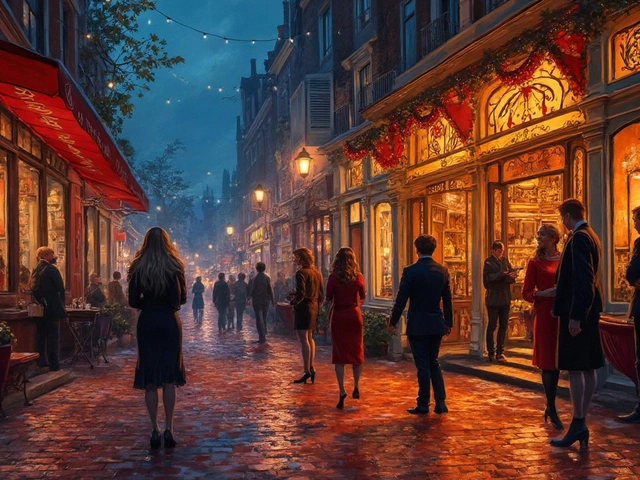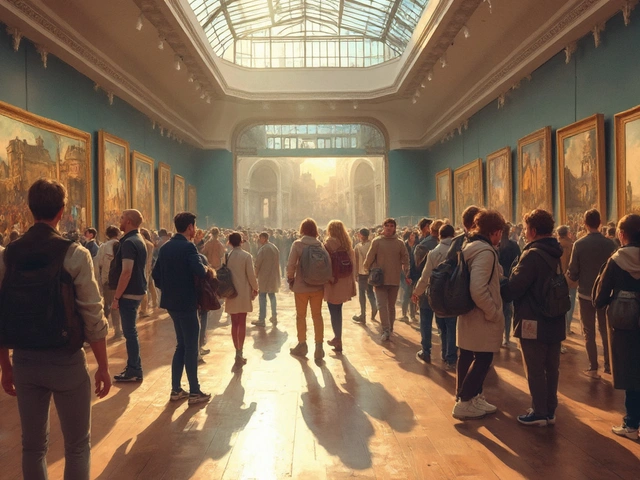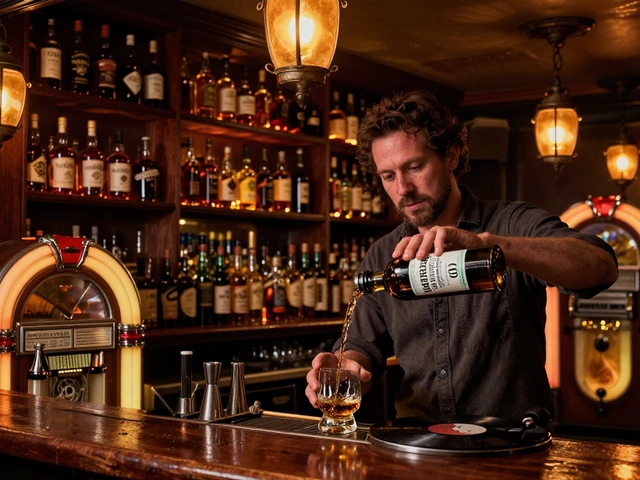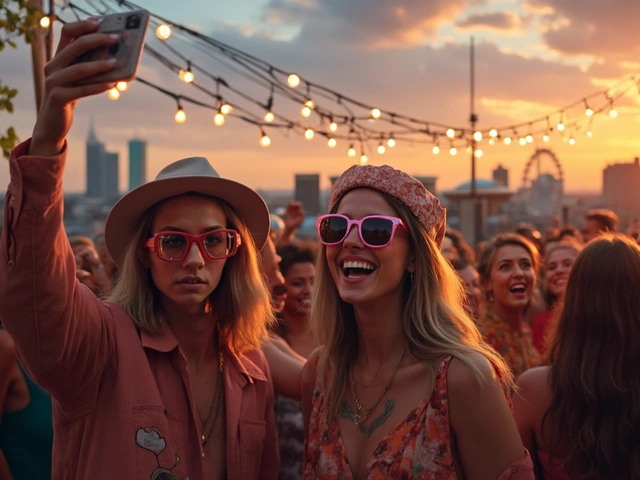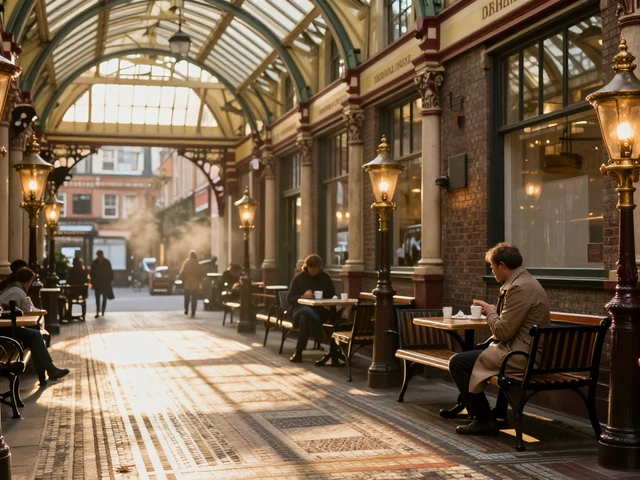In London, the night never really sleeps-but it’s changing fast. What used to mean pub crawls in Shoreditch or queueing for a table at a Soho club has evolved into something far more dynamic. London’s nightlife events now blend music, art, culture, and surprise in ways that surprise even the most seasoned night owls. Whether you’re a local who’s seen it all, an expat trying to find your scene, or a tourist looking for something beyond the typical West End show, the current wave of nightlife in London is built for discovery, not just drinking.
Pop-Ups Are the New Permanent Spaces
Forget fixed venues. The hottest spots in London right now don’t have fixed addresses. Think London nightlife events that appear overnight in disused warehouses, rooftop car parks, or even converted tube stations. Last month, a secret techno night called Submerged took over the old Bankside Power Station-no website, no social media promo, just a single text message sent to 500 subscribers at 6 p.m. on Friday. Doors opened at 11 p.m. and sold out in 47 minutes. This isn’t exclusivity for the sake of it; it’s about creating moments you can’t replicate. The same model worked for The Velvet Vault in Peckham, a 1920s speakeasy-style event hidden behind a fridge in a greengrocer’s back room. You need a password, given only to those who’ve attended two prior events. It’s not about being elitist-it’s about building a community that values authenticity over Instagrammable facades.Music Meets Movement: Dance-Driven Experiences
London’s club scene has shifted from DJs spinning tracks to full sensory experiences. At House of Vans in Southwark, monthly events like Body Electric pair live electronic music with immersive light installations and movement workshops led by local dance collectives like London Contemporary Dance. Attendees don’t just watch-they join. One recent event had participants moving through a maze of projection-mapped corridors while a live modular synth player responded to their movements in real time. It’s not just a party; it’s participatory art. And it’s catching on. Events like these now regularly sell out weeks in advance, with ticket prices hovering around £25-cheaper than a standard club cover, but offering far more value.Neighbourhood Nights Are Taking Over
Forget central London. The real energy is spreading outward. In Brixton, the Market Nights series turns the Brixton Market into a 24-hour cultural hub on the last Friday of every month. Street food stalls turn into pop-up bars, local DJs spin Afrobeat and UK garage, and artists paint live on walls. In Hackney, Clapton After Dark transforms quiet side streets into open-air cinema nights with vinyl-only soundtracks and themed cocktails named after local legends-like the Barry Manilow Fizz (a gin-based drink with elderflower and a dash of smoked salt). Even in places like Lewisham and Croydon, local councils are funding “Safe Nights Out” initiatives, where free shuttle buses run between curated events until 3 a.m., encouraging people to explore beyond the usual hotspots.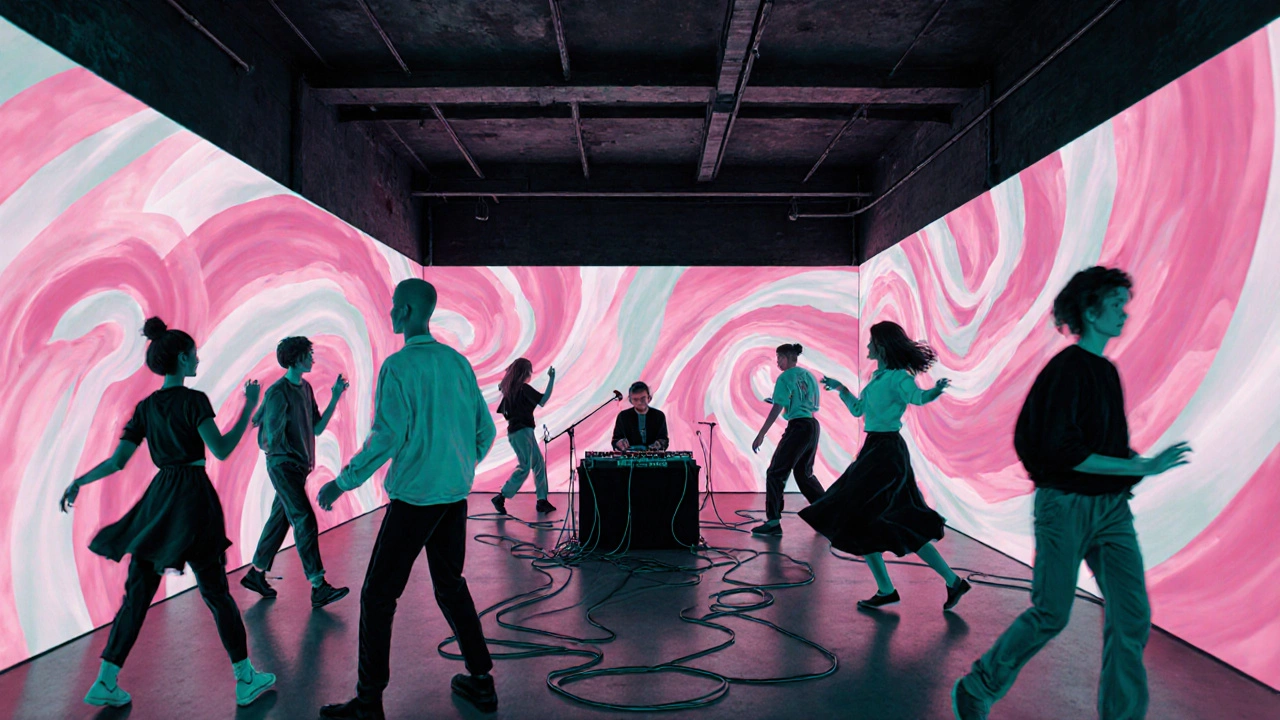
Brands Are Playing Along-But Not How You Think
Big names aren’t just sponsoring clubs anymore. They’re co-creating. Heineken didn’t just slap its logo on a warehouse party. It partnered with London Jazz Festival to launch After Hours: Jazz & Craft, where attendees could sample small-batch London gins while listening to live jazz sets in hidden courtyards behind the Royal Albert Hall. Meanwhile, Boots launched Recharge Lounges inside major events-free water, electrolyte shots, and even earplugs and painkillers-positioning themselves as the responsible party host. It’s not about selling more beer; it’s about building trust. And it’s working. A recent survey showed 68% of Londoners under 35 now prefer events where brands offer real utility over just branding.Day-to-Night Blurs: The Rise of Late Lunch and Early Breakfast Events
The traditional 10 p.m. to 2 a.m. window is gone. Now, events start at 4 p.m. and run until dawn. Tea & Techno at The Standard Hotel in King’s Cross begins with afternoon tea service at 4 p.m., transitions into ambient house by 6 p.m., and builds to a peak at 1 a.m. with a live set from a local producer. Meanwhile, Breakfast Club in Camden-yes, breakfast-is a Sunday morning event where DJs play classic UK garage and house while you eat full English plates with bacon butties and black coffee. It’s not a hangover cure-it’s a ritual. And it’s becoming a staple. Why? Because Londoners are tired of choosing between work and play. These events let them do both.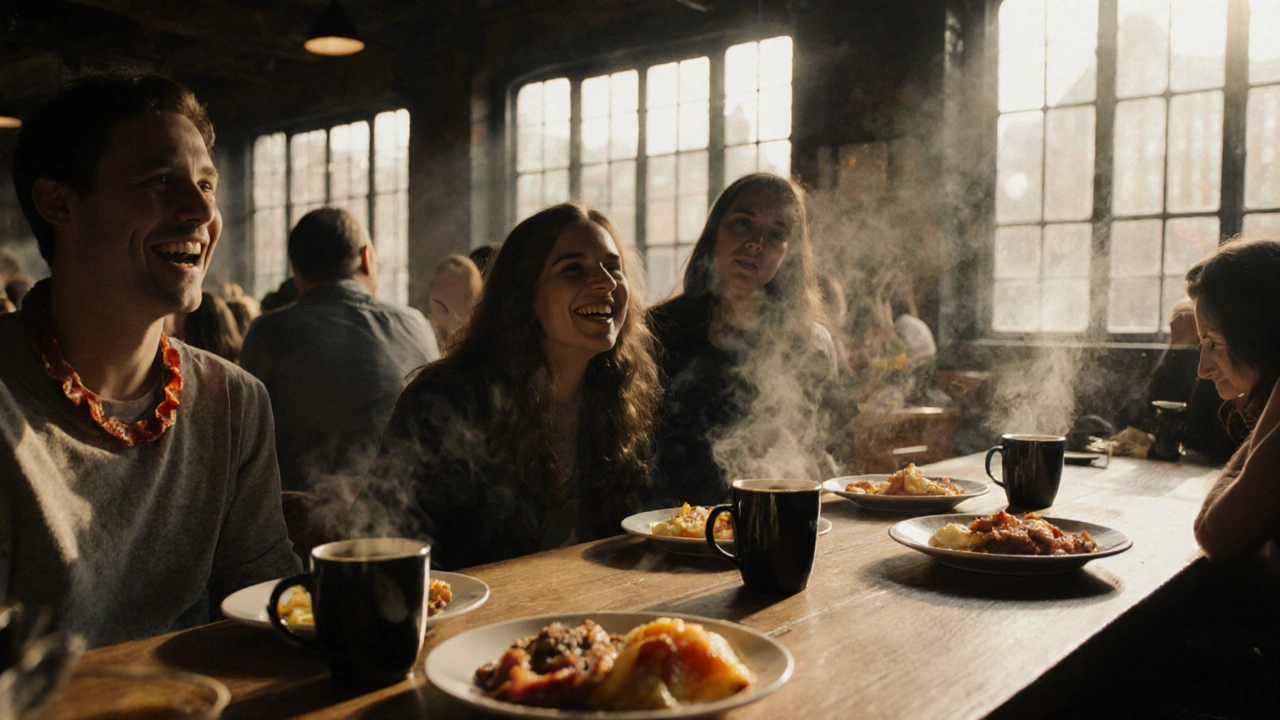
What’s Not Working Anymore
If you’re still running a standard club night with a cover charge, a three-drink minimum, and a bouncer who checks your ID like it’s a passport, you’re already behind. Londoners are over the performative. They don’t care if your venue has velvet ropes or a neon sign. They care if the music feels alive, if the staff remembers their name, if the lighting changes with the beat. The days of £12 gin and tonics in Mayfair are fading. The new currency is experience, not alcohol volume.Where to Find the Next Big Thing
Forget listing apps. The best events in London are found through word of mouth, niche newsletters, and local record shops. Subscribe to London Nights Weekly-a free email digest that only lists underground events, no ads. Follow Woolwich Works on Instagram-they drop surprise pop-ups every Tuesday. Check the bulletin board at Phonica Records in Soho. Talk to the baristas at Monmouth Coffee in Borough Market-they know who’s playing where next weekend. And don’t be afraid to show up alone. Many of these events are designed for solo attendees. You’ll leave with a new playlist, a new friend, and maybe a new routine.Why This Matters for London
This isn’t just about fun. It’s about reclaiming space. After years of closures during the pandemic and rising rents forcing out independent venues, these new events are a quiet rebellion. They’re proving that culture doesn’t need a lease agreement. It just needs people willing to show up, participate, and protect what’s real. In a city where housing is unaffordable and work hours are endless, these nights are the last true public squares. They’re where strangers become friends, where music becomes memory, and where London feels alive-not just lit up.What’s the best way to find underground nightlife events in London?
The most reliable way is through trusted local sources: subscribe to newsletters like London Nights Weekly, follow independent venues like Woolwich Works or House of Vans on Instagram, and check physical bulletin boards at record shops like Phonica Records or cafes like Monmouth Coffee. Most secret events are announced via SMS or private DMs-so build relationships with bartenders, DJs, and regulars. Avoid relying on mainstream event apps-they rarely list the real underground scenes.
Are London nightlife events still expensive?
Not necessarily. While traditional clubs still charge £15-£25 just to get in, many new events cost £10-£20 and include food, drinks, or experiences. For example, Tea & Techno at The Standard includes afternoon tea and a live set for £22. Recharge Lounges offer free water and recovery snacks. Many neighbourhood events like Brixton Market Nights are free to enter-just pay for what you consume. The trend is shifting toward value, not just price.
Is it safe to attend secret or pop-up events in London?
Yes, if you follow basic precautions. Most pop-ups now partner with local safety teams and have licensed stewards, first aid stations, and free shuttle services. Events like those in Brixton, Hackney, and Peckham are backed by borough councils under Safe Nights Out programs. Always check if the event has a public WhatsApp group or contact number. Avoid events that require you to text a number with no verifiable source. Trust your gut-if something feels off, leave. London’s underground scene is generally very community-driven and protective of its participants.
What should I wear to a London nightlife event?
Dress for comfort and expression, not for impressing bouncers. Most new events have no strict dress code. Think layers-London weather changes fast, and venues can be cold or sweaty. A good pair of boots, a statement jacket, and breathable fabrics work better than heels or tight suits. Many events are held in warehouses or outdoor spaces, so avoid delicate fabrics. If you’re unsure, look at photos from past events on Instagram. Most attendees prioritize style that moves with them, not style that stands still.
Why are breakfast events becoming popular in London’s nightlife scene?
Because Londoners are tired of choosing between work and play. Traditional nightlife pushes people into late nights that interfere with Monday mornings. Breakfast events solve that by offering a shared ritual that ends the night on a nourishing note. They’re social, low-pressure, and feel more like a community gathering than a party. Plus, eating a full English after a long night helps you recover-no hangover pills needed. It’s practical, cultural, and uniquely London.
If you’re looking to reconnect with what makes London’s night special, stop scrolling and start showing up. The next great night out isn’t on a billboard-it’s behind a fridge in Peckham, in a warehouse near the Thames, or at a coffee shop where the barista just handed you a secret code. All you need is curiosity, an open mind, and a pair of good shoes.

